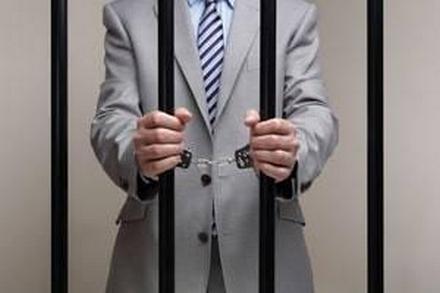TELEPHONES ANSWERED 24 HOURS A DAY
Defense Strategies for Individuals Accused of White Collar Federal Crimes
 The term “white collar crime” started gaining popularity in the 1930s. Crimes involving fraud for financial gain are often referred to as white collar crimes because these offenses are often committed by business professionals. Unlike violent offenses, the motivation behind white collar crimes like wire fraud and identity theft is typically financial in nature. Many white collar crimes are prosecuted by the federal government. A conviction for a federal white collar crime can lead to serious criminal consequences, including substantial prison time.
The term “white collar crime” started gaining popularity in the 1930s. Crimes involving fraud for financial gain are often referred to as white collar crimes because these offenses are often committed by business professionals. Unlike violent offenses, the motivation behind white collar crimes like wire fraud and identity theft is typically financial in nature. Many white collar crimes are prosecuted by the federal government. A conviction for a federal white collar crime can lead to serious criminal consequences, including substantial prison time.
If you or a loved one were charged with a federal offense involving fraud, identity theft, embezzlement, money laundering, or conspiracy, contact a federal crimes defense lawyer for help right away. Your attorney can evaluate your case and determine the best defense strategy moving forward.
How to Defend Yourself Against White Collar Criminal Offenses
Whatever the nature of an offense, the first defense strategy is the same: Assert your right to remain silent. A shocking number of educated professionals end up incriminating themselves because they speak to police without their attorneys present. If you are arrested for a white collar offense, do not let police interrogate you. Ask for your lawyer and then say nothing.
A skilled criminal defense lawyer experienced in federal white collar crimes may use a variety of defense strategies based on the particularities of the case, including:
-
Insufficient evidence – Criminal cases are held to the highest burden of proof in U.S. law. The prosecution must prove the defendant’s guilt “beyond a reasonable doubt.” Inadequate evidence may be used to cast doubt on the defendant’s culpability.
-
Lack of Intent – If you read the U.S. code for crimes like identity theft and fraud, you will notice words like “knowingly” and “intentionally.” This is because most white collar crimes are crimes of intent. To obtain a conviction, the prosecution must prove that the defendant intentionally committed the crime. A lawyer may argue that there was a lack of intent in pursuit of an acquittal.
-
Coercion – Sometimes, individuals get caught up in criminal activity because they are forced or coerced through threats and intimidation. For example, someone who owes another party a great deal of money may be coerced by that party into committing a crime under the threat of physical harm.
-
Entrapment – Police sting operations and undercover police work often toe a line between lawful and unlawful activity. Entrapment occurs when a police officer induces or persuades someone to commit an offense that the person would have otherwise not committed.
Contact a Chicago Criminal Defense Lawyer
If you or a loved one were accused of bank fraud, wire fraud, money laundering, or another white collar offense, turn to Chicago white collar defense attorney Hal M. Garfinkel for help. Call the Law Offices of Hal M. Garfinkel LLC, Chicago Criminal Defense Attorney today at 312-629-0669 for a free consultation.
Source:
https://www.justice.gov/archives/jm/criminal-resource-manual-1512-prohibited-acts-18-usc-1028




